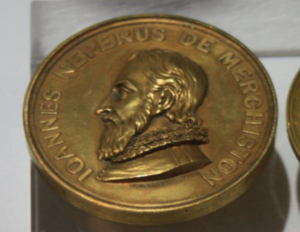
The Dean Cemetery is a historically important Victorian cemetery north of the Dean Village, west of Edinburgh city centre, in Scotland. It lies between Queensferry Road and the Water of Leith, bounded on its east side by Dean Path and on its west by the Dean Gallery. A 20th-century extension lies detached from the main cemetery to the north of Ravelston Terrace. The main cemetery is accessible through the main gate on its east side, through a "grace and favour" access door from the grounds of Dean Gallery and from Ravelston Terrace. The modern extension is only accessible at the junction of Dean Path and Queensferry Road.

The Royal Society of Edinburgh (RSE) is Scotland's national academy of science and letters. It is a registered charity that operates on a wholly independent and non-partisan basis and provides public benefit throughout Scotland. It was established in 1783. As of 2021, there are around 1,800 Fellows.

Patrick Fraser Tytler FRSE FSA(Scot) was a Scottish advocate and historian. He was described as the "Episcopalian historian of a Presbyterian country".
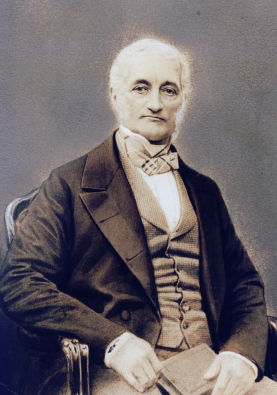
William Burn was a Scottish architect. He received major commissions from the age of 20 until his death at 81. He built in many styles and was a pioneer of the Scottish Baronial Revival,often referred to as the golden age of Scottish architecture.

Charles Scott Dickson, Lord Dickson, FRSE LLD was a Scottish Unionist politician and judge.

Sir George Reid PRSA was a Scottish artist.

The Grange is an affluent suburb of Edinburgh, just south of the city centre, with Morningside and Greenhill to the west, Newington to the east, The Meadows park and Marchmont to the north, and Blackford Hill to the south. It is a conservation area characterised by large early Victorian stone-built villas and mansions, often with very large gardens. The Grange was built mainly between 1830 and 1890, and the area represented the idealisation of country living within an urban setting.

John Horne PRSE FRS FRSE FEGS LLD was a Scottish geologist. He served as president of the Royal Society of Edinburgh from 1915 to 1919.
Edward Thomas Copson FRSE was a British mathematician who contributed widely to the development of mathematics at the University of St Andrews, serving as Regius Professor of Mathematics amongst other positions.

George Chrystal FRSE FRS was a Scottish mathematician. He is primarily known for his books on algebra and his studies of seiches which earned him a Gold Medal from the Royal Society of London that was confirmed shortly after his death.
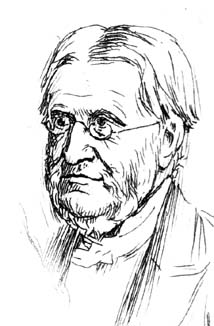
Philip KellandPRSE FRS was an English mathematician. He was known mainly for his great influence on the development of education in Scotland.
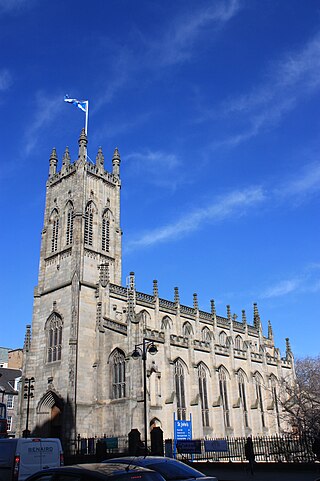
The Church of St John the Evangelist is a Scottish Episcopal church in the centre of Edinburgh, Scotland. It is sited at the west end of Princes Street at its junction with Lothian Road, and is protected as a category A listed building.
Alexander Crichton Mitchell FRSE, named in some sources as Arthur Crichton Mitchell, was a Scottish physicist with a special interest in geomagnetics who worked for many years in India as a professor and head of a meteorological observatory before returning to Scotland. He then worked with the Royal Navy to devise a system, known as an anti-submarine indicator loop, for detecting submarines by detecting currents induced in a loop of wire on the sea floor.
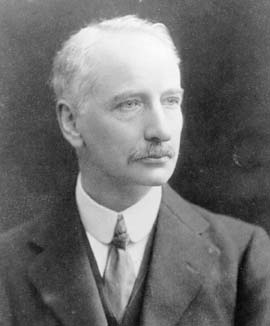
William Peddie FRSE LLD was a Scottish physicist and applied mathematician, known for his research on colour vision and molecular magnetism.
The Gunning Victoria Jubilee Prize Lectureship is a quadrennial award made by the Royal Society of Edinburgh to recognise original work done by scientists resident in or connected with Scotland.
Dr Charles Sheibner du Riche Preller FRSE FRGS MIEE MICE (1844–1929) was a German-born late 19th/ early 20th century British engineer and amateur geologist. He specialised in electric railways. He was fluent in English, French, German and Italian. He founded the Royal Society of Edinburgh's Bruce-Preller Lecture Prize in memory of his wife. He was Chairman and Chief Engineer of the Limmat Valley Electric Railway Company in Switzerland.
Harold Stanley Ruse, MA, DSc, FRSE was an English mathematician, noteworthy for the development of the concept of locally harmonic spaces. He was Professor of Pure Mathematics at the University of Leeds.
